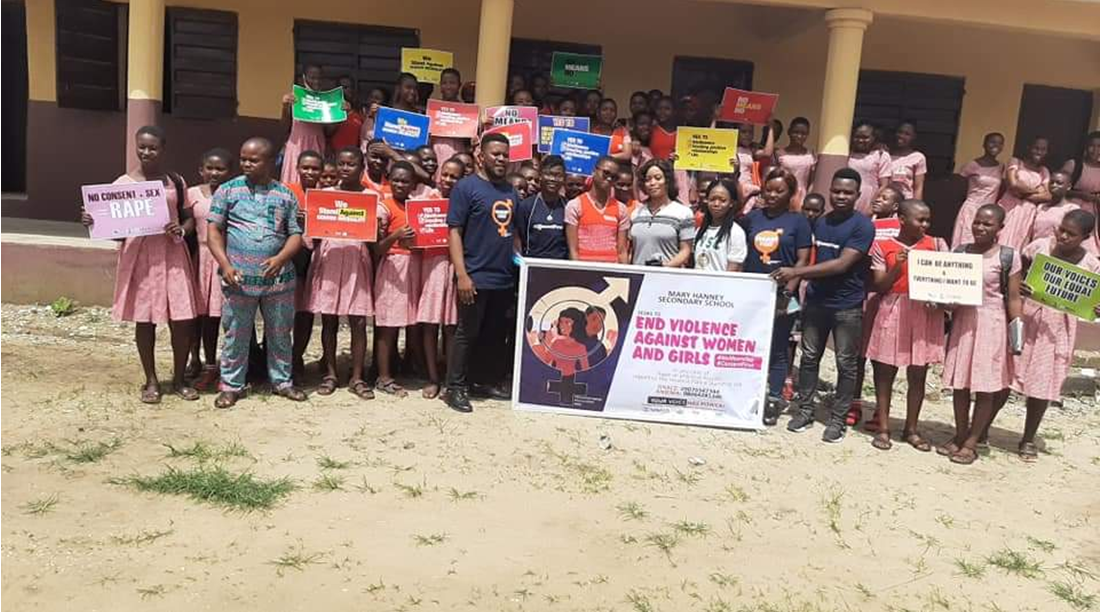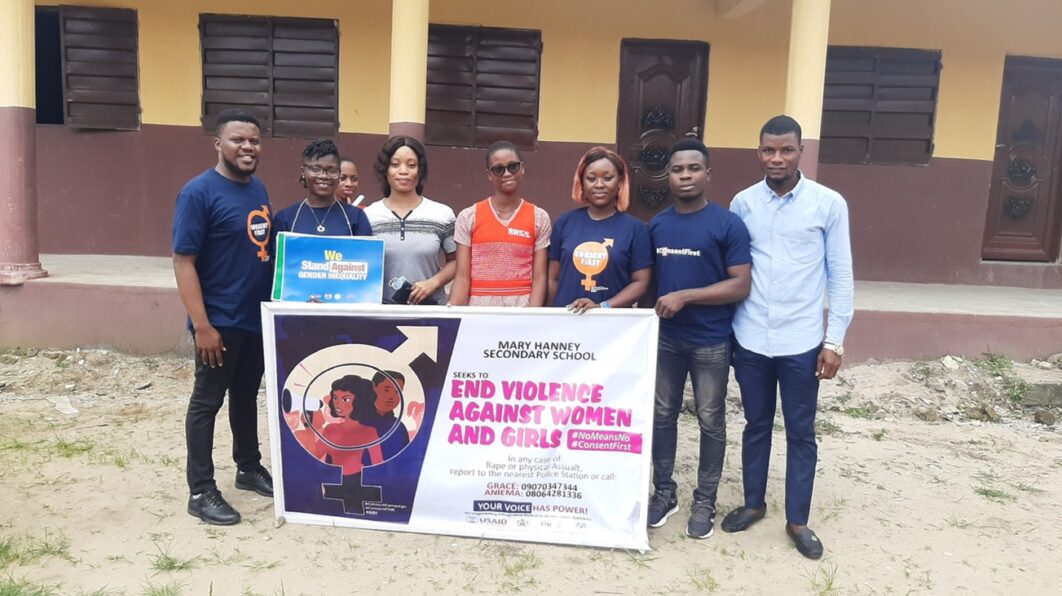
In 2020, Godson Ndubueze, a medical doctor and public health practitioner in Akwa-Ibom State met Emem, a frail looking teenager, who walked in seeking medication to cure recurring symptoms – a resistant cough, skin conditions and paling body. Upon investigation Emem was found to not just be HIV positive, but also a victim of gender based violence. While Emem was able to receive medical help, and the abuser was brought to book, she was just a minuscule representation of many other women who may never get help in their lifetime.
[ad]
Standing at a staggering 736 million women, almost one in three women have been victims of Gender-based violence (physical and/or sexual) at least once in their life. In Nigeria, 1 in 3 Nigerian women have experienced physical violence by age 15. These data are not just figures, they are real people, a sister, a wife, a friend, women we know. Gender based violence which captures any act of violence, physical, sexual or psychological against women has been described by the WorldBank as a global pandemic, and it is.
While the challenge of Gender based violence is global, it is highly prevalent in developing countries like Nigeria where women have limited rights – from domestic, verbal and sexual abuse, to early and forced marriages, female genital cutting and much more. Thankfully in recent years, public health practitioners and individuals like Godson have taken the fight to end gender based violence more seriously, despite the progress, more work needs to be done.
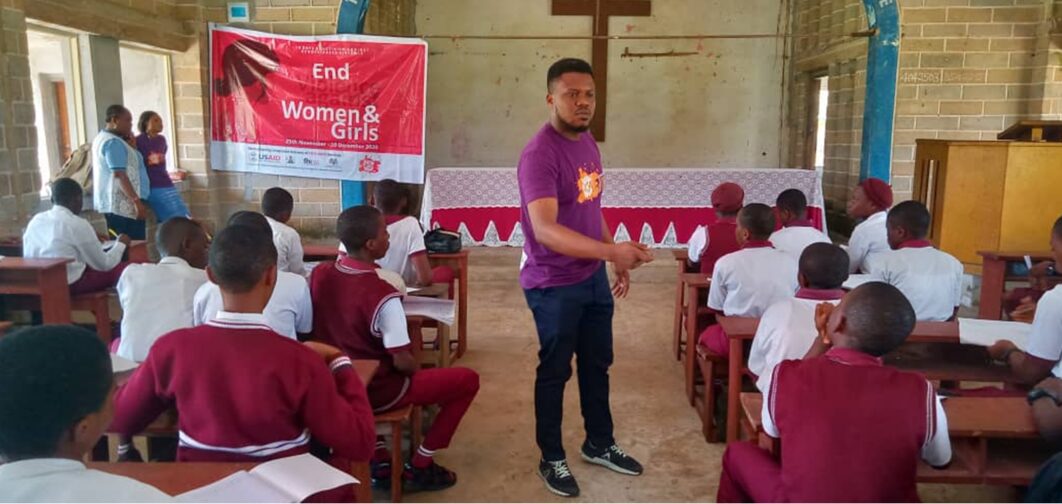
Godson’s experience with Emem was a jolt into reality, and an insight into the daily fight of women to simply live their lives. This spurred him to volunteer for several NGOs, and ultimately launch The Consent Campaign, an initiative that took the message of ending gender based violence to secondary schools across Akwa-Ibom State. He organized a team made up of seven healthcare professionals and two human rights agencies. Through the campaign, they demystified ideologies surrounding rape, sexual consent, and harassment. Within an eight-week campaign, the campaign reached over 3,500 students across 10 communities.
They didn’t stop there, they also created a confidential safe space for identified victims and survivors of sexual violence to report any form of abuse immediately or at least within 24-hours of occurrence through a secure telephone hotline. The girls affected could also reach out to this hot-line for other forms of support on their journey hence the hotline doubled as a mental health line.
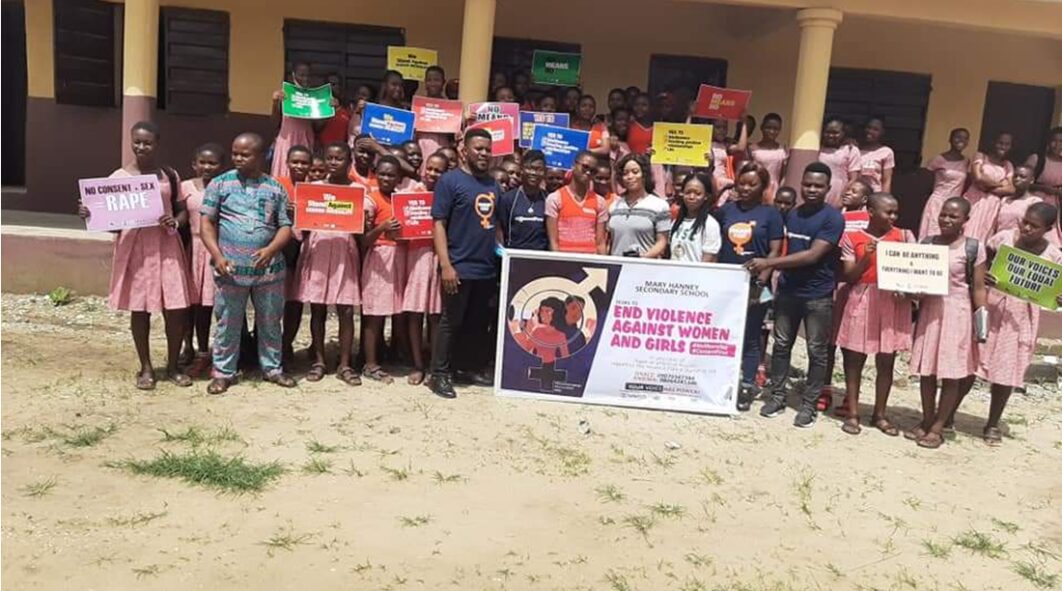 Girls in the schools they reached were taught basic defense skills, including the use of pepper spray as a form of defense to ward off sexual assaults.
Girls in the schools they reached were taught basic defense skills, including the use of pepper spray as a form of defense to ward off sexual assaults.
The boys were not left out, they were taught on consent, abstinence and the impact/repercussions of committing gender based violence. They were also taught on how they can help end violence against women by being a voice and actively protecting women and girls in their family, school and community.
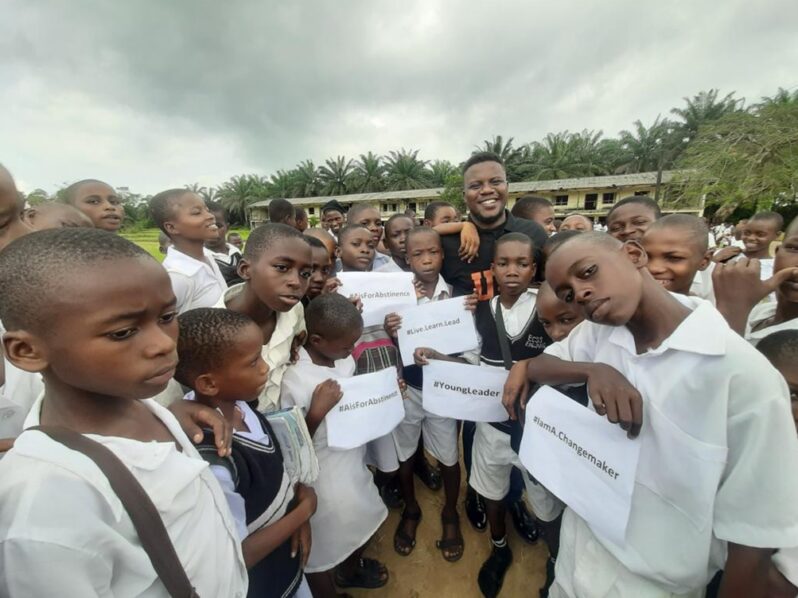
In Godson’s words, “Violence against women is a crime against humanity, equality and fairness”. The International Day for Violence against women is not just an event, but a call to action and change. Take Action Today
Driven by a passion for equitable healthcare access, Dr. Godson Ndubueze tackles critical barriers to healthcare in rural communities of Nigeria. As a medical doctor and Technical Assistant at Achieving Health Nigeria Initiative, he spearheads efforts in prevention, care, and treatment, while championing initiatives that address gender-based violence, maternal and child health.
[ad unit=2]


